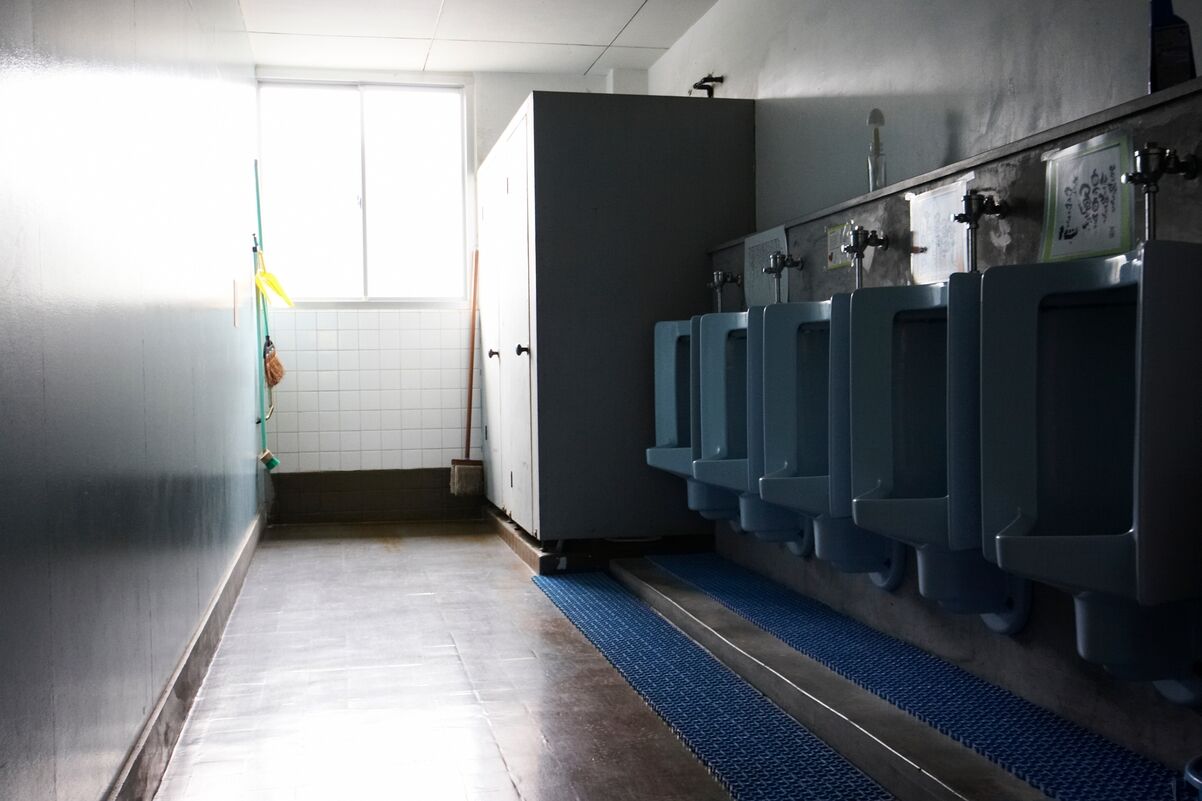It’s been a major week for trans rights in the United States. Just days after former high school student Gavin Grimm won his Virginia court case, a federal appellate court upheld an affirming bathroom policy in Boyertown, Penn.
On Thursday the 3rd U.S. Circuit Court of Appeals rejected a lawsuit against Boyertown Area School District for allowing transgender students to use the restrooms and locker room facilities which most closely correspond with their lived gender identity. It denied an injunction against the policy filed by a pair of conservative groups who claimed it violated the rights of their cisgender peers.
The three-judge panel took less than 20 minutes to debate the case after hearing this week’s testimony.
The case concerns “Joel Doe,” who claims that he was subjected to “embarrassment and humiliation” when he was forced to share a locker room with a male transgender student at the Berks County School. When the student, whose real name was not disclosed in case filings, complained to the administration, staff members informed him he should “tolerate” his trans classmates or use a gender-neutral bathroom in the nurse’s office to change instead.
Attorneys from the Alliance Defending Freedom, which has authored numerous anti-trans bathroom bills across the U.S., say that decision did more than affect his grades. Refusing to accommodate his objections on the basis of safety and privacy constituted “sexual harassment.”
“Joel Doe” was joined in the case by five other students, who lost a lower court ruling this August.
The 3rd Circuit found no reason to overturn that decision. Presiding Judge Theodore McKee claimed the cisgender students who fought to file an injunction blocking the trans-affirming policy “had failed to show that the district’s policy infringed upon their rights to privacy or caused them irreparable harm,” as Philadelphia magazine initially reported.
Justices noted that the expedited ruling reflected the fact that many of the trans high school students affected by this court case will soon graduate. McKee was joined on the bench by Judges Patty Shwartz and Richard Lowell Nygaard.
“This case obviously has a great deal of interest not just to the community but to the kids at the school,” the court claimed.
Advocates say the ruling sets an important precedent for trans students.
“The court saw that treating transgender students equally does not harm any other students in the school,” claimed ACLU Staff Attorney Ria Tabacco Mar in a statement. “All students should have the opportunity to fully participate in school. Boyertown’s practice makes that possible.”
Conservative groups who fought the policy, though, said they would continue their quest to see it struck down. Randall Wenger, Chief Counselof the Independence Law Center,vowed to file for an en banc hearingmeaning all 3rd Circuit judges would be present.
Wegner claimed the students have a “strong” case.
“Even though the decision today was disappointing, we plan to continue this litigation to protect and ultimately vindicate the privacy rights of our client,” he told Philadelphia after the ruling was handed down.
The ADF added in a statement that the 3rd Circuit decision breaks with other court rulings on the matter of trans student rights.
“The Supreme Court has already spoken: the real differences between men and women mean that privacy must be protected where it really counts, and that certainly includes high school locker rooms and restrooms,” the right-wing advocacy group said. This decision is out of step with longstanding legal protection for privacy.”
But that isn’t accurate. On Tuesday, a federal judge ruled in favor of a trans student in the nation’s highest-profile bathroom fight.
Judge Arenda L. Wright Allen of the U.S. District Court for the Eastern District of Virginia claimed that Grimm, a former student at Gloucester High School in Virginia, was “subjected…to sex stereotyping” when he was denied the right to use the bathroom consistent with his gender identity.
“There were many other ways to protect privacy interests in a nondiscriminatory and more effective manner than barring Mr. Grimm from using the boys’ restrooms,” Allen said, directing the school district to settle a lawsuit with the student within 30 days. “The Board’s argument that the policy did not discriminate against any one class of students is resoundingly unpersuasive.”
Meanwhile, Juliet Evanchothe trans sister of Trump inauguration singer Jackie Evanchowon her lawsuit to overturn a discriminatory bathroom policy last year. That case was also based in Pennsylvania.
Aidan DeStefano, the trans student at the center of the Boyertown case, thanked the 3rd Circuit for recognizing the trend toward progress.
“Transgender students just want what everyone else wants, to be accepted for who we are,” DeStefano said in a statement. “Reversing the practices that have allowed me and other trans kids to thrive at school would have been devastating. I’m glad other transgender students will know the experience of being treated like any other student.”
Two other cases surrounding trans bathroom rights are currently being debated.
In Montana, officials with the local ACLU filed a challenge to the Montana Locker Room Privacy Act, a ballot measure which would force trans people to use locker rooms and public bathrooms consistent with their “biological sex.” Meanwhile, two conservative groups in Dallas, Oregon claim trans-inclusive bathroom policies “radically changed the meaning” of national civil rights laws on sex discrimination.
Image via Getty
Don't forget to share:
Help make sure LGBTQ+ stories are being told...
We can't rely on mainstream media to tell our stories. That's why we don't lock our articles behind a paywall. Will you support our mission with a contribution today?
Cancel anytime · Proudly LGBTQ+ owned and operated
Read More in Impact
The Latest on INTO
Subscribe to get a twice-weekly dose of queer news, updates, and insights from the INTO team.
in Your Inbox













